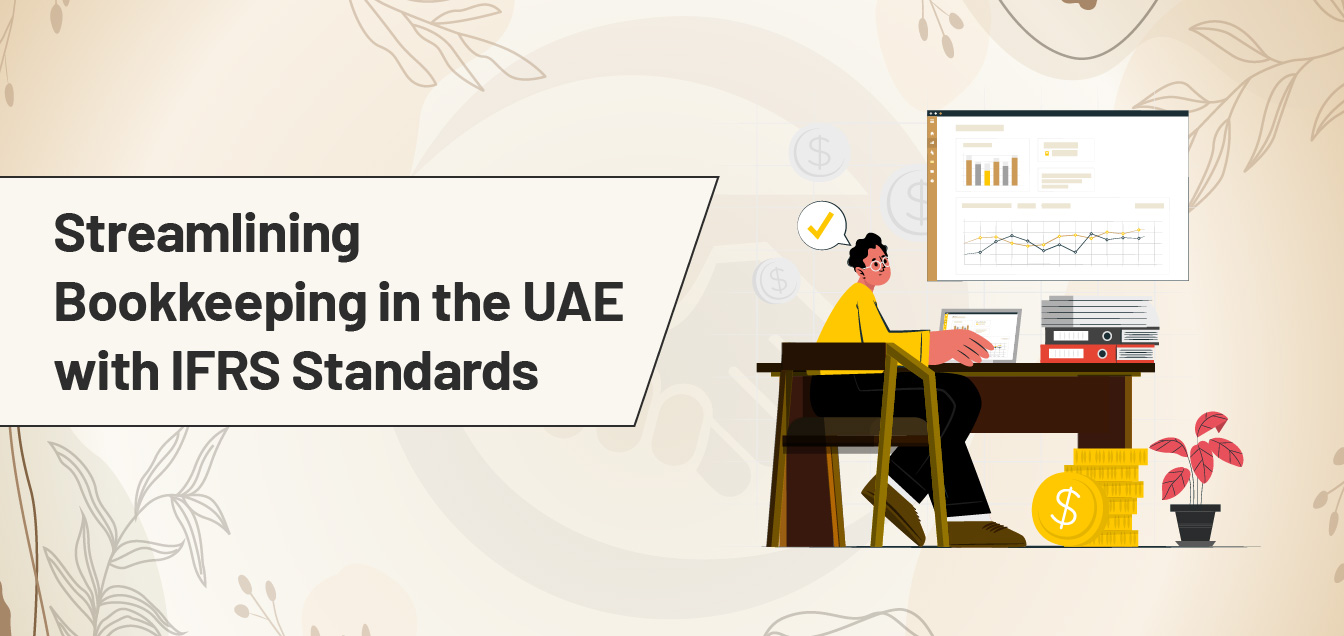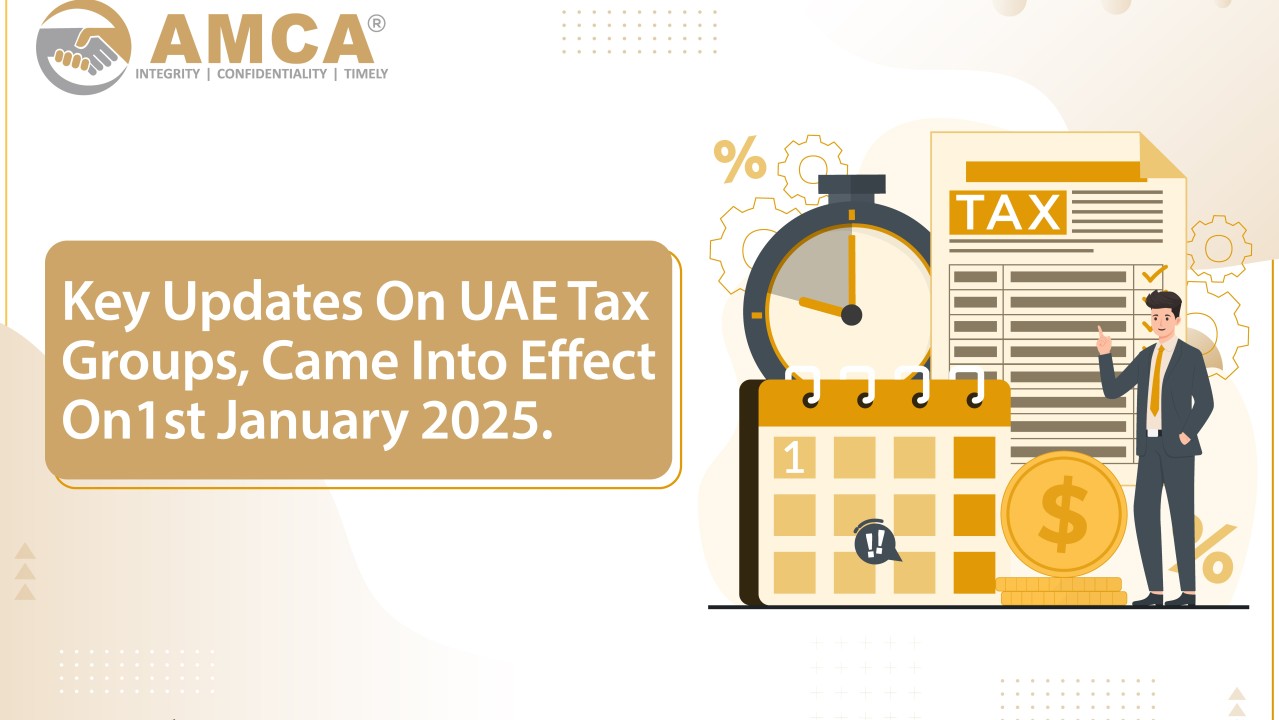
12 Nov 2024
Streamlining Bookkeeping in the UAE with IFRS Standards
The fast-paced and dynamic business landscape of the United Arab Emirates makes it crucial for businesses to maintain accurate and efficient bookkeeping. Compliance with the UAE accounting standards is essential for streamlining bookkeeping UAE. The International Financial Reporting Standards (IFRS) are the accepted accounting standards adopted by the UAE, and businesses must ensure that their bookkeeping practises, financial management and financial reporting are in alignment with these standards. Bookkeeping best practices under IFRS UAE constitute understanding the IFRS requirements, tax planning, regular reconciliation, and leveraging advanced technology.
Accounting Standards in the UAE
The United Arab Emirates implements and follows the International Financial Reporting Standards (IFRS) as the accounting standard for financial reporting. IFRS is a set of accounting regulations and standards issued by the International Accounting Standards Board (IASB) that determines how transactions and other accounting events are required to be reported in financial statements. The Securities and Commodities Authority (SCA) governs the UAE accounting standards and UAE financial reporting.
How to Streamline Bookkeeping in UAE with IFRS?
1. Understand IFRS and Bookkeeping Requirements
International Financial Reporting Standards (IFRS) provide a global framework for financial reporting, and companies in the UAE are required to strictly adhere to these standards. The first step towards compliance with IFRS for efficient bookkeeping UAE is to have a comprehensive understanding of IFRS and its constituting principles, which include revenue recognition, lease accounting and financial instruments. Complying with these standards enhances consistency and transparency. Ensure that your accounting team is well-versed with these standards. For comprehensive compliance with these standards, seek the expertise of a professional auditing firm like AMCA.
2. Regular Reconciliation and Compliance Checks
Regularly reconciling and evaluating accounts for compliance checks are crucial for maintaining accurate financial records that are in alignment with IFRS implementation UAE. Reconcile your bank accounts, accounts payable and accounts receivable to identify any discrepancies and rectify them before any potential issue arises. Additionally, internal audits are beneficial for reviewing your accounts intricately, along with routine compliance checks. The current account policies adopted by your business must be in accordance with the UAE accounting standards.
3. Maintain Clear & Comprehensive Documentation
Organised and clear documentation is essential for UAE bookkeeping compliance IFRS and streamlined accounting UAE IFRS. Moreover, comprehensively maintained documents streamline the audit process and assist in accurate financial reporting. All financial transactions must be supported by accurate and complete documentation, including invoices and receipts. An audit trail should also be maintained to track any changes and updates to the financial data.
4. Engage with a Professional Auditing Firm
A reliable auditing firm with proven experience, like AMCA, can significantly streamline your bookkeeping UAE processes and ensure compliance with the IFRS standards. Auditing firms are competent in navigating and implementing complex standards by incorporating automated processes, regularly reviewing financial statements, and identifying discrepancies in the financial statements to mitigate potential risks. The experts at auditing firms deploy accounting systems that align with IFRS requirements and keep the accounts updated with evolving standards. They also offer recommendations to enhance internal controls and prevent risks.
5. Accounting Software and Bookkeeping Automation in the UAE
Investing in technologically advanced accounting software UAE streamlines the bookkeeping process and optimises accounting operations to enhance accuracy, precision, and compliance with the IFRS standards. Accounting software that supports IFRS adoption UAE offers a range of benefits, including automated financial reporting, tailored reports and adherence to UAE-specific regulations. Bookkeeping automation in the UAE allows repetitive tasks such as data entry and invoicing to be automated, thereby reducing manual errors and improving efficiency.
6. Strengthening Internal Controls & Optimising Tax Planning
Adequate internal controls can maintain the accuracy of financial statements and financial reporting and ensure compliance with IFRS standards. Internal controls can be reinforced by implementing standardised procedures for bookkeeping activities, including revenue recognition and expense recording, to ensure consistency and prevent errors. Regular reconciliation procedures of the financial records and enhanced documentation also help implement robust internal controls. Firms must also schedule regular internal audits to review compliance with IFRS standards and evaluate the effectiveness of internal controls.
Ensure IFRS UAE Compliance with AMCA
By aligning your bookkeeping practises with IFRS, you can ensure that your business not only meets international standards but also builds reliability in financial reporting. AMCA, one of the leading bookkeeping and accounting firms in the UAE, specialises in bookkeeping under IFRS and IFRS accounting. The experienced professionals at AMCA offer comprehensive and tailored services to streamline your bookkeeping processes, address IFRS compliance challenges UAE, and ensure compliance, thereby enhancing financial clarity.
Let AMCA be your trusted partner in achieving financial excellence!
Read More: Navigating VAT Penalties and Fines in Dubai: What You Need to Know
Read More: Top 8 Audit Firms in Dubai
Read More: Bookkeeping Tips for Startups to Maintain Positive Cash Flow
Read More: The Essential DIFC List of Auditors: Ensuring Financial Transparency and Compliance



.jpg)
